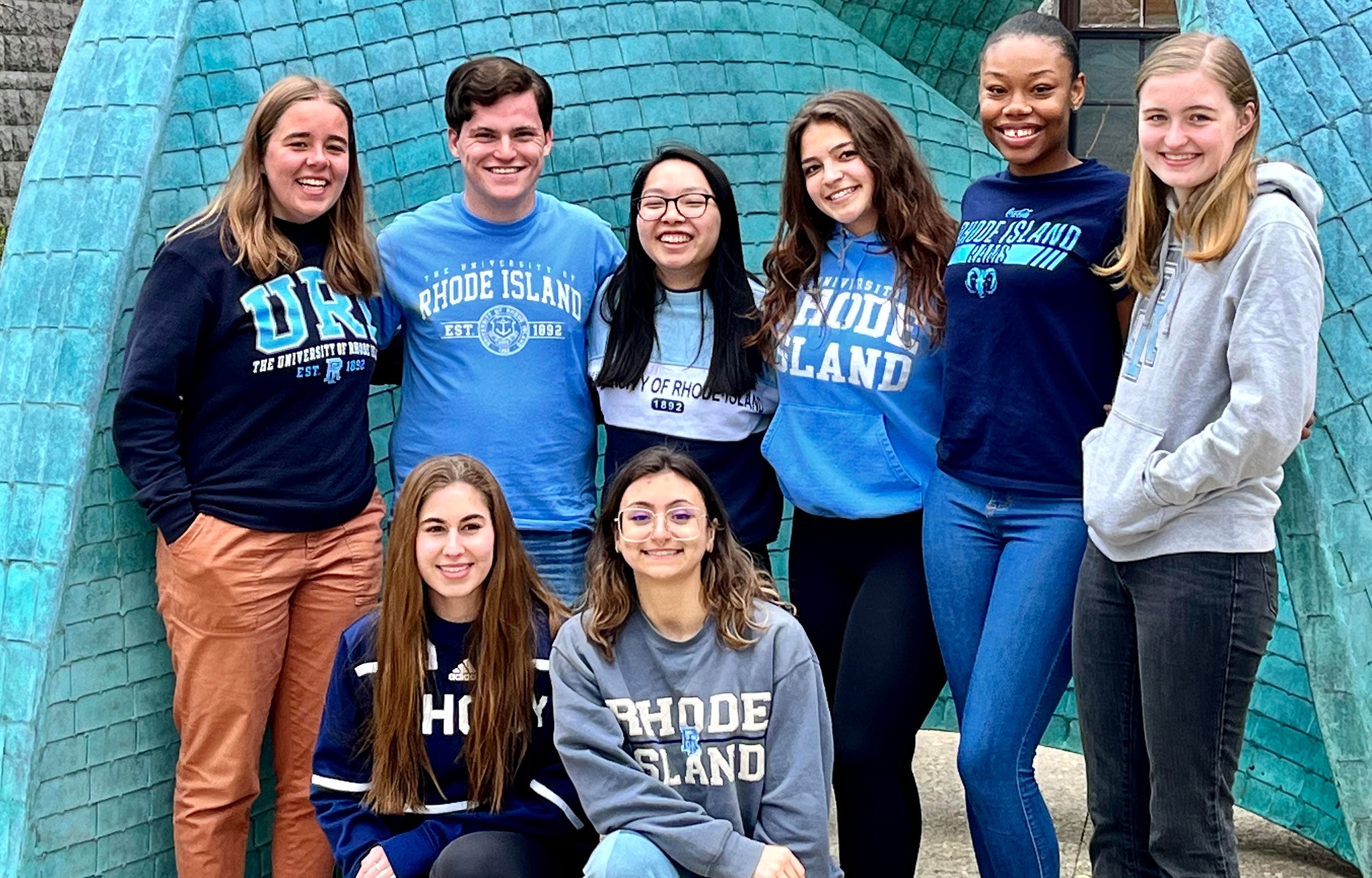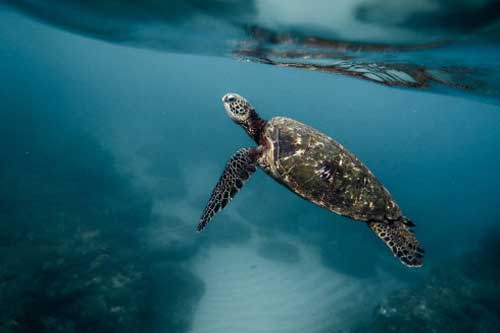
Eight URI sophomores have been awarded the Ernest F. Hollings Undergraduate Scholarship from the National Oceanic and Atmospheric Administration, the most prestigious scholarship awarded to undergraduates in the marine sciences. The University is the top producer of Hollings Scholars among the 84 colleges and universities in this year’s selection pool.
The Hollings Scholarship program is designed to increase undergraduate training in oceanic and atmospheric science, foster public support of stewardship of the ocean and atmosphere, and recruit and prepare students for public service at NOAA and other natural resource agencies.
Each year, about 120 students from around the country are awarded a Hollings Scholarship, which includes $19,000 in scholarship funds for the students’ final two years of undergraduate study and a paid internship at a NOAA facility the summer between their junior and senior years. It also provides funding for each student to participate in two Hollings conferences at NOAA headquarters, or virtually, and to attend up to two scientific conferences to present the results of their NOAA internship.
This marks the 14th straight year URI students have been named Hollings Scholars. Since the start of the program in 2005, URI students have won 41 Hollings Scholarships, which have provided more than $675,000 in scholarship funds in addition to earnings from a paid NOAA summer internship between the junior and senior years.
About this year’s Hollings recipients
For his Hollings Scholarship, Matt Brander, a double major in marine biology and aquaculture and fisheries science, hopes to conduct field research on large, ecologically important fishes, such as sharks and tuna. After URI, he would like to pursue a master’s degree and Ph.D.
Marine biology major Taya Clements’ research interests include coral reef ecosystems, tropical fish and aquatic plants. As a Coastal and Environmental Fellow this summer, she will study the effects of climate change on brook trout in Rhode Island streams. For her NOAA internship, she would like to participate in fieldwork studying the impacts of climate change and incorporating strategies for ecosystem-based management.
For her NOAA internship, geology major Molly Halla hopes to study sea ice cover, noting the three NOAA labs that study the topic. “I am fascinated by how scientists measure and predict sea ice cover using remote sensing and climate models and could see myself in this area,” she said.
From her earliest days growing up in the Caribbean, Kara James has been attracted to the sea. “I fell in love with all the different animals and coral reefs,” said the marine biology major, whose interests center on coral reef protection, along with preserving mangrove habitats, and studying stingrays and reef fishes. She hopes her NOAA internship will include work on coral reef protection, along with fishes that depend on the reefs to survive.
A marine biology and wildlife and conservation biology double major, Ellie Madigan is interested in conducting research on the effects of climate change on the marine environment. “I know that I want to work in conservation and public outreach/education,” she said. For her NOAA internship, she hopes to work on NOAA’s marine sanctuary projects or other conservation efforts. She would like to eventually work in conservation research for a government agency such as NOAA or a nonprofit organization.
Maricarmen Serna, a double major in marine biology and environmental and natural resource economics, has pursued interests in sustainability and species conservation in her classes, caught and tagged blue and mako sharks with Professor Bradley Wetherbee, and worked in his lab. She continues that work this summer as a CELS Science and Engineering Fellow. About the NOAA internship, she said, “I can’t wait to expand my research proficiency and enjoy a once in a lifetime opportunity working alongside a NOAA researcher.”
Marine biology major Alexandra Sinno is taking part in a paid NSF-funded internship at Florida Atlantic University this summer, studying marine ecosystem health. In the fall, she will head to Bermuda for a URI study abroad program that includes classes in coral reef ecology, marine invertebrates, research diving, and independent research. “For the Hollings Scholarship, I really hope I get to do an internship that involves coral reef restoration and health. That would be amazing,” said Sinno, who plans to pursue a master’s degree in marine biology with a focus in coral reef biology after URI.
Zoe Scipioni’s interest in marine life took hold during a high school trip to the Galapagos Islands. A marine biology and wildlife and conservation biology double major, her interests have led to a focus on conservation of endangered species and a desire to work on coral reef ecosystems. “During my NOAA internship, I hope to get more experience working with professionals in the field and becoming more familiar with how research is conducted,” she said. “I would love to work on a project that deals with conserving coral reef ecosystems, but I will be happy with whatever I end up doing.”
—Tony LaRoche

